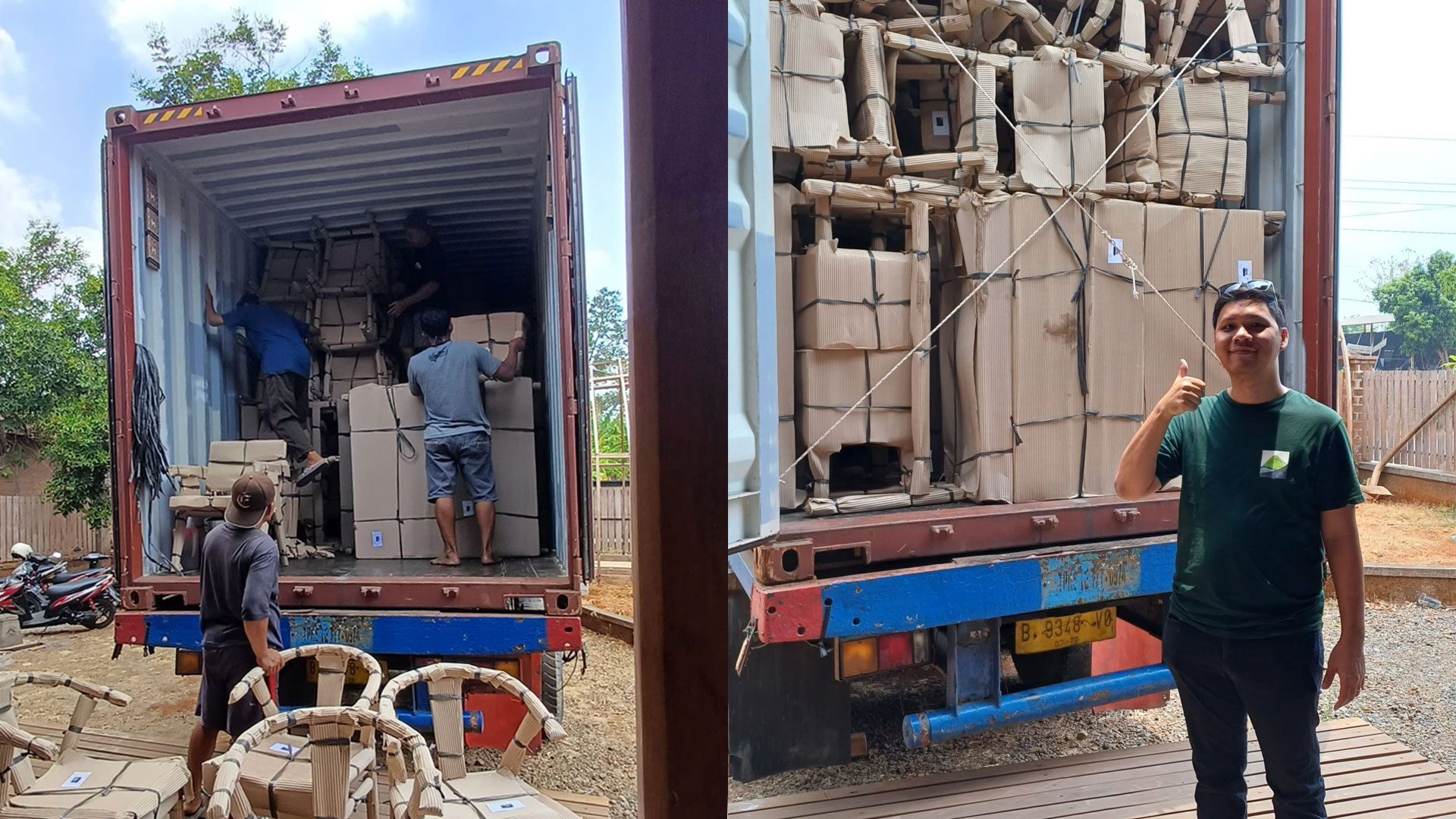In the world of wholesale and B2B furniture sourcing, choosing the right manufacturer is one of the most critical decisions a buyer can make. At Mobelindo, we have spent over a decade supplying custom teak furniture for hospitality, retail, and commercial projects in more than 15 countries. Our journey has taught us that the success of any furniture sourcing project lies not only in design and pricing—but in finding a trustworthy and capable partner.
This guide is designed to share practical, experience-based insights on how to choose the right furniture manufacturer in Indonesia. Whether you’re sourcing for a hotel chain, a retail brand, or a large-scale interior project, this article will help you navigate the process with clarity.
1. Why Indonesia? A Global Hub for Sustainable Furniture
Indonesia has become a top destination for B2B furniture buyers because it offers an abundant supply of legal teak wood and other hardwoods, a rich tradition of craftsmanship (especially in regions like Jepara and Central Java), and competitive pricing for export-quality products. Additionally, the government supports sustainable practices through certifications like SVLK (Indonesian Legal Wood).
From the perspective of long-term procurement, Indonesia provides a rare combination of sustainability, compliance, and scalability. However, the market is broad, and not all so-called “manufacturers” operate under the same standards.
2. Manufacturer vs. Middleman: Know Who You’re Dealing With
We’ve encountered many buyers who initially believed they were working directly with a factory, only to find out later they were dealing with a trading company or agent. While agents can be helpful in some situations, working directly with a manufacturer provides better control over pricing, more transparency in production and quality control, greater flexibility for customization, and direct communication with the production team.
At Mobelindo, we own and operate our own workshop. Buyers who visit us in Jepara immediately recognize the difference—from the clear production lines to organized material inventory and a team that understands technical requirements.
3. Essential Certifications & Legal Compliance
Furniture exports from Indonesia are subject to strict regulations, especially when timber is involved. A reliable manufacturer must have SVLK Certification, which is mandatory for wood exports, and complete company legality documents such as NIB, NPWP, and an export license.
One example of our commitment to compliance occurred in 2023 when a European client sent a third-party verification team to audit us. Thanks to our internal systems and regular audits, our documentation passed on the first submission.
While some international markets may mention additional certifications like FSC, it’s important to note that in Indonesia, SVLK is the official and most relevant certification recognized for legal wood sourcing and export. FSC is not mandatory, and many reputable exporters—including Mobelindo—operate fully within international compliance standards using SVLK.
4. Evaluate Their Customization & Technical Capabilities
B2B buyers often require project-specific solutions rather than standard catalog items. When evaluating a manufacturer, it’s important to understand whether they can interpret technical drawings or CAD files, whether they offer prototypes before mass production, and if they can adapt finishing or material specifications as needed.
For example, a client from the UAE asked us to develop a full range of outdoor teak furniture with a specific oil-based finish and a knockdown system for logistical efficiency. We conducted a two-week prototyping phase before approving the production of over 400 units.
5. Kiln Drying & Wood Preparation
This is one of the most critical yet often overlooked steps. Some manufacturers cut corners by skipping kiln drying or using uncalibrated systems. At Mobelindo, we kiln-dry all wood to a moisture content (MC) of 8–12% in accordance with international standards.
To test the impact, we once produced two identical chairs—one with air-dried wood, the other with kiln-dried. After 60 days in a climate-controlled showroom, the air-dried unit developed cracks while the kiln-dried piece remained stable. This level of reliability is essential for clients in regions like Europe, the US, and the Middle East where humidity control is crucial.
6. Factory Visit: Physical or Virtual
A trustworthy manufacturer should always be open to showing their facilities. If a physical visit isn’t feasible, ask for a factory walkthrough video, live video calls from the production floor, or recent photos showing production runs, packing, and quality control processes.
We regularly schedule live Zoom inspections during the packaging stage. It’s a simple but powerful way to maintain alignment and build trust.
7. Understand Their Export Readiness
Exporting furniture involves more than just production. It includes professional packing using knockdown systems, cartons, foam, or pallets, accurate handling of HS codes and shipping documents like PI, invoices, packing lists, and certificates of origin, and familiarity with Incoterms such as FOB, CIF, or EXW.
At Mobelindo, we have shipped containers to over 20 countries. Every item is checked for finish consistency, moisture stability, and dimensional accuracy before packing.
8. Ask for References and Case Studies
Before committing, always ask the manufacturer for references or case studies. If they hesitate, that’s a red flag. We maintain records of our past hotel and restaurant projects and are happy to connect prospective clients with previous buyers to establish trust.
For instance, in 2022, we completed a project involving over 1,000 furniture pieces for a luxury villa cluster in the Caribbean. The client appreciated not just the product quality but also our efficient communication, logistics, and documentation handling.
9. The Role of Communication and Culture Fit
Effective communication is often underestimated but plays a crucial role. Your manufacturer should clearly understand project briefs, respond within 24 hours, and be proactive in resolving design or technical challenges.
At Mobelindo, we assign a dedicated project manager to each client. This ensures that every email, drawing, or sample request is handled by someone accountable and familiar with the project.
Final Words: Choose a Partner, Not Just a Vendor
Choosing the right furniture manufacturer in Indonesia is about more than just capacity—it’s about finding a partner you can trust. As a B2B buyer, your ideal supplier should align with your quality standards, understand your market, and deliver consistently on time.
At Mobelindo, we take pride in serving as a long-term partner to clients across the hospitality, retail, and design industries worldwide. If you’re looking to build or scale your furniture supply chain from Indonesia, we invite you to connect with us.








0 Comments